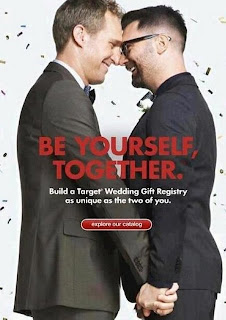Although Chris Nolan's "Batman Begins" was a dark, gritty albeit conventional (please note, I don't use the word pejoratively) superhero movie, "The Dark Knight" tapped into something primal. No film, play, or any other work of fiction has, in my opinion, captured the dynamism between two larger than life personalities like Nolan has in his masterpiece. It was the duel of oppositional philosophies, combined with a divine performance by the late Heath Ledger, that made "The Dark Knight" truly an event.
My inner Dungeons and Dragons nerd would tell you that it was the ultimate battle between law and chaos. The Joker, a force of pure entropy, blazed through Gotham city like a dark storm, trying his damnedest to prove that mankind is savage and animal; that we are soulless creatures in a society held together only by fear and madness is only a few bullets away. Batman was the counterpoint. The battle between id and superego raged, and the duel between the Joker and the Batman became an internal struggle within ourselves. Almost intuitively, There could be no resolution. There was no maguffin, no conventional plot devices, and the only trope that was used (the hero always saves the girl) was devilishly subverted.
So, perhaps unavoidably, I went into the third installment with behemoth expectations. The film opens with archival footage of the last film, as if to remind the audience of the film's triumphant predecessor. What follows can only be described as a hot mess. The story is uncompelling. The plot revolves around the League of Shadows, the villains from the first film, trying to destroy Gotham once again. Instead of poisoning the city's water supply like they did in the first movie (remember? They used the Scarecrow?) this time they use a nuke and are governed by a new leader, a bulky masked brawler named Bane.
From the moment you hear his lines beneath an unforgivably squeaky voicemask, Tom Hardy's Bane feels hokey. I think the problem is Bane strives for Joker-dom, but he can't sell his philosophy because his philosophy is too ephemeral. Sometimes he is a champion of the poor and dowtrodden, other times he's a religious zealot dedicated to avenging the League of Shadows. He never settles, and the fact his voice sounds like it's coming though one of those Darth Vader mask from Toys-R-Us doesn't help matters.
Bane isn't charismatic enough. Although he beats up Batman on several occasions, his personality is not strong enough to oppose Batman on a cosmic level. By his own admission, Nolan wanted a villain who could challenge Batman physically, but it alters the fabric of the Batman universe when the physical fight becomes the level of hero-villain competition. During one of Batman's clashes with Bane, I couldn't help but recall the fight between Batman and the Joker in the interrogation room. Physically, Batman destroyed The Joker. The power of the scene came from the fact that, despite the physical match, the Joker could not have won the fight more cleanly through his own force of will.
Anne Hathaway's Catwoman is, at times, compelling. She has moments of brilliance but lapses into Hedy Lamarr shtick far too often for me to take her seriously. Sadly, there wasn't much chemistry between her and the Batman either. The real sizzle sparked between he and Marion Cotillard, who portrayed the Bats other love interest. With Catwoman, the romance seemed stale and the kisses had a distinctly unnatural flavor.
Christian Bale does the lion's share of the acting, but for a movie about Batman, he sure isn't in it very much. Joseph Gordon-Levitt and Gary Oldman deliver honest, albeit one-note performances as idealistic, tough as nails cops. But without any breakout performances or cosmic collisions, the bland story and cluttered cast rise to the surface.
Did I mention there were plot holes in the film so wide you could floss between them?
That's not to say the movie wasn't fun; the fights between Batman and Bane are gritty and brutal, yet an odd feeling came over me as I watched the film. Without the vernier of Heath Ledger's legendary performance, the conservatism of the film wrapped its hands around me and, Bane-like, throttled me to the point of extreme discomfort.
For no explicable reason, Bane causes some class warfare in Gotham. The rich are murdered and the people begin to live Occupy Wall Street-style, subsisting on military issued government handouts. A little on the nose, I thought. Worse still, the nuke set to destroy the city was originally a green (literally and figuratively) energy source. Maybe the Bat-mobile runs on coal.
But the worst part about The Dark Knight Rises? Now I question whether I love "The Dark Knight" as much as I use to. I caught it on TV last night, and if you forget that Heath Ledger gave a performance that may have destroyed him, the storyline of that film is a convoluted mess, and the Patriot-Act overtones are hard to ignore.
Maybe I'm being too hard on the movie. After all, despite my newfound gripes, "The Dark Knight" was a masterpiece and "Rises" had some mammoth expectations to fulfill. I just ponder, as I tend to do in my spare time, if perhaps the wool has been pulled over my eyes in this Batman trilogy. I'm a Batman fanboy through and through. I've loved the caped crusader ever since he and his rogue gallery stole my heart in the 1990's cartoon series. Maybe in the pursuit of the Bat, in my critical need to have my dreams of an awesome Batman franchise come true, I switched off my artistic filter. But without its predecessor, was this movie really a letdown? Maybe I'm being too critical, seeing specters of my own prejudices. I ping pong.
My real downfall here is that I try to assess art objectively, but in the case of Batman, I don't know if I'm able to do so. And that, dear reader, is the quandry.


